TikTok Appeals Ban to U.S.
WASHINGTON — TikTok has made a last-ditch effort to prevent a U.S. ban on its app, requesting the U.S. Supreme Court to block a law that could force its parent company, ByteDance, to divest the platform by January 19, 2025. If enforced, this law would require the popular app, used by around 170 million Americans, to be removed from app stores, effectively halting its operations in the U.S.
The case has sparked a high-stakes legal battle, with the U.S. government citing national security concerns due to TikTok’s Chinese ownership and its access to significant amounts of personal data from U.S. users. While the government argues that TikTok could be used to influence U.S. users and manipulate content, the company counters that the law violates free speech rights and is based on unfounded fears.
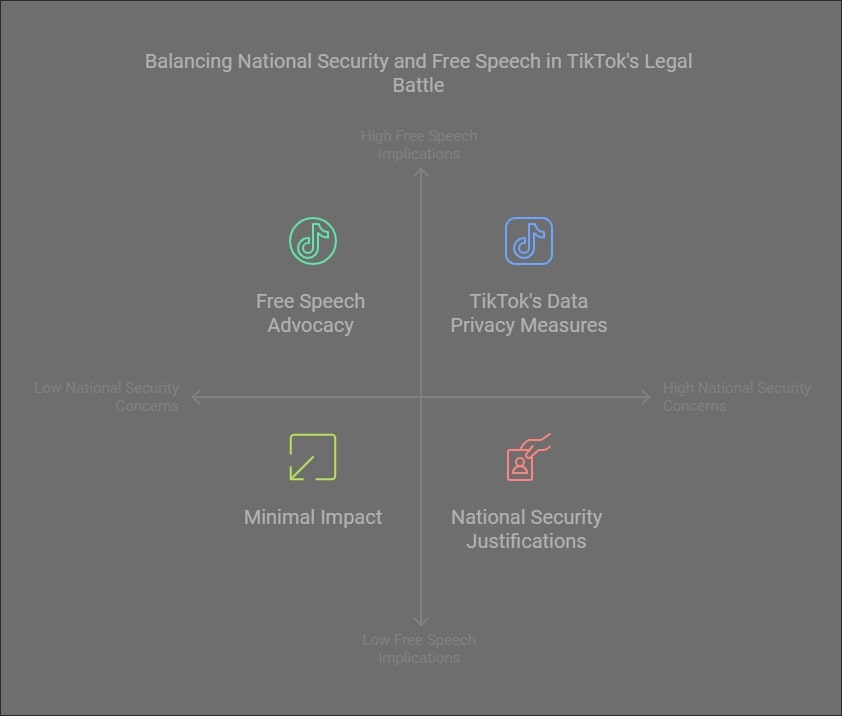
Table of Contents
The Legal Battle Heats Up
TikTok’s appeal comes after a federal appeals court upheld the law on December 6, 2024, which mandates ByteDance either sell TikTok or face a ban in the U.S. Congress passed the law in April 2024 and is part of broader efforts to limit foreign influence over American digital platforms.
The U.S. Justice Department has repeatedly stated that TikTok, as a Chinese-owned company, poses a national security threat. The government argues that the Chinese government could exploit TikTok’s vast access to U.S. user data—such as location, private messages, and browsing habits. They also fear that TikTok could be used to alter the content seen by Americans covertly, manipulating public opinion or spreading propaganda.
In its emergency filing to the Supreme Court, TikTok strongly rejects these claims, arguing that the law unfairly targets the company without evidence of wrongdoing. “The First Amendment guarantees Americans the right to freely choose what content they engage with,” TikTok’s legal team argued. “If users are informed of the risks, they should be allowed to make their own decisions about using the app.”
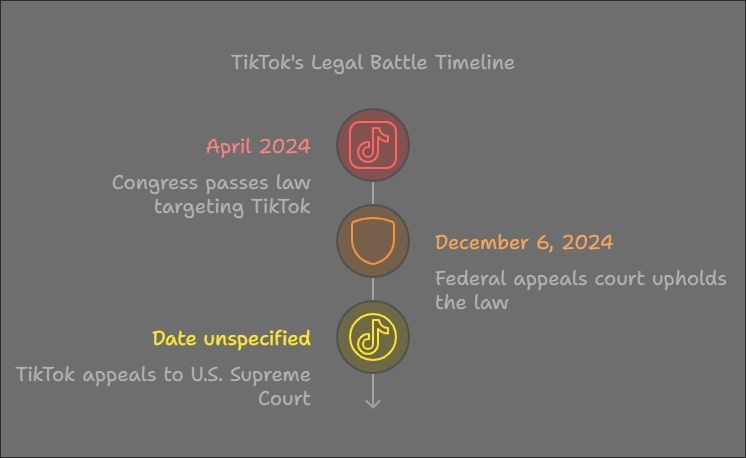
Political Ramifications: Trump’s Reversal
The case has also attracted political attention, particularly from former President Donald Trump, who initially attempted to ban TikTok during his first term over national security concerns. However, in the 2024 presidential race, Trump has notably reversed his stance, expressing support for TikTok and pledging to protect the app from the legal threats it faces.
At a press conference on December 16, Trump said he holds “a warm spot in my heart for TikTok” and would “take a look” at the matter when he returns to office in January. His support could be significant, especially as the divestment deadline approaches.
TikTok’s filing argues that banning the app just days before a presidential inauguration would set an unprecedented legal precedent. “A law that targets and potentially bans one of the most popular platforms in the U.S. on the eve of a new administration is extraordinary,” the filing stated. The companies warn that this could undermine free speech rights for millions of U.S. citizens who rely on TikTok for expression, entertainment, and communication.
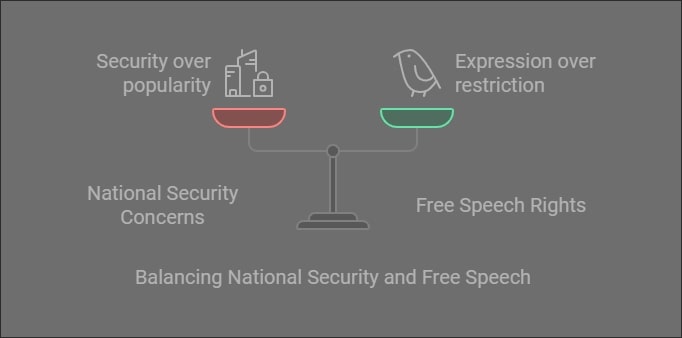
National Security vs. Free Speech
The dispute raises crucial questions about balancing national security concerns and individual freedoms. While the government argues that TikTok’s Chinese ownership poses an unacceptable risk to U.S. interests, TikTok maintains that there is no substantial evidence to justify the ban. The company also insists that it has never shared U.S. user data with the Chinese government.
The law, which passed in April, mandates that TikTok either be sold to a U.S.-based company or face a shutdown in the U.S. If upheld, the law could have broader implications for other foreign-owned apps, setting a precedent for how the U.S. deals with tech companies from adversarial nations. TikTok’s situation echoes similar concerns about other Chinese-owned apps, such as WeChat, which were targeted by the Trump administration in 2020 but blocked by the courts.
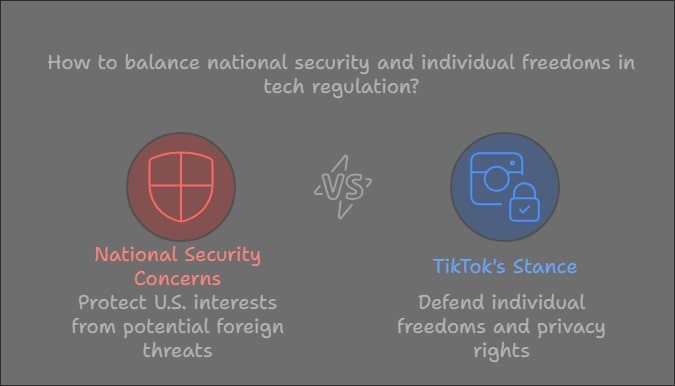
The Broader Implications
The outcome of this case could set important precedents for U.S. tech policy, influencing TikTok’s future and the broader digital landscape. It also highlights the deepening geopolitical tensions between the U.S. and China, which have spilled over into the tech sector. As the two global superpowers continue to clash, the fate of TikTok could impact global digital markets and policies on internet freedom.
This case also underscores the challenge of regulating foreign-owned tech companies in an era of data-driven decision-making. With the role of social media and data security at the forefront of global discussions, the Supreme Court’s decision could have far-reaching consequences beyond TikTok itself.
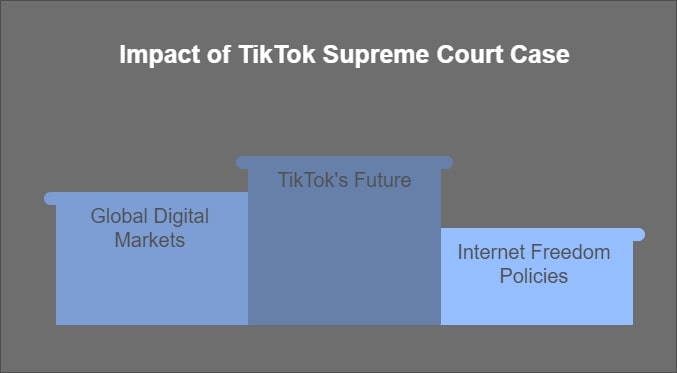
What’s Next?
As the January 19 deadline for ByteDance to divest TikTok approaches, the company is asking the Supreme Court to rule by January 6, 2025. TikTok argues that a decision is urgently needed to allow time for preparations if the law is upheld. If the Supreme Court refuses to block the law, TikTok will face the difficult task of shutting down its U.S. operations by the deadline.
The legal fight between TikTok and the U.S. government has captivated attention worldwide, with millions of users and political leaders watching closely. The Court’s ruling could reshape the future of tech regulation, setting new boundaries for foreign influence on U.S. digital platforms.






Leave a Reply